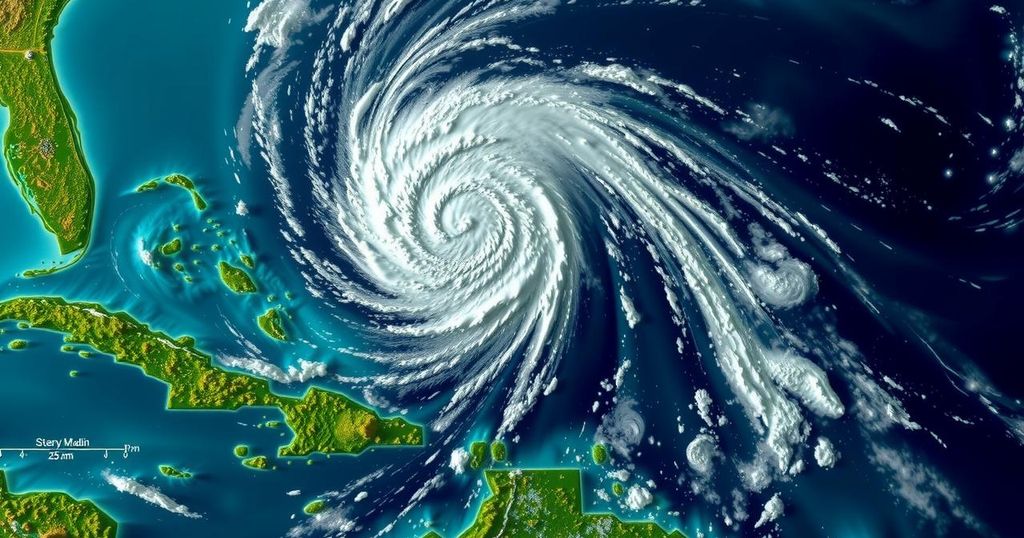Status Update on Potential Tropical Storm Nadine

The likelihood of the low-pressure system AL94 evolving into Tropical Storm Nadine has significantly decreased, with current chances at 20 percent for the next two days and 30 percent over the next week. Although development is still possible, strong upper-level winds may disrupt this process. Heavy rain and gusty winds are expected in the northern Caribbean, but the U.S. is unlikely to be affected.
Potential Tropical Storm Nadine has seen a significant decline in development prospects as a low-pressure system, designated AL94, continues to be monitored by the National Hurricane Center (NHC). Originating off the west coast of Africa, AL94 has undergone fluctuating chances of transformation into a tropical storm throughout the week, currently situated east of the Leeward Islands. Earlier in the week, the probability of it developing into Tropical Storm Nadine reached as high as 60 percent; however, this figure has now dwindled to 20 percent for the next 48 hours and 30 percent over the next week, according to the latest NHC update. The system, while it may exhibit some slow development, faces imminent threats from strong winds expected later this week, potentially hampering its growth. The NHC has reported that “Showers and thunderstorms associated with a trough of low pressure located a few hundred miles east of the Leeward Islands remain disorganized.” As the system progresses westward at approximately 20 mph, it is projected to approach the Virgin Islands and Puerto Rico by Friday, followed by Hispaniola and southeastern Bahamas over the weekend. The prevailing upper-level winds are anticipated to halt any development by the end of the weekend. Despite the diminished likelihood of becoming a tropical storm or hurricane, meteorologists suggest that heavy rain and gusty winds will still impact the northern Caribbean islands. According to AccuWeather senior meteorologist Tom Kines, “The chances of this developing into a tropical storm or even a hurricane seem to have diminished over the past couple of days. Having said that, there is still a window that this could develop. If it is going to do it, it must occur in the next two, maybe three days.” Fortunately for the United States, no impacts from AL94 are anticipated, a relief following the recent back-to-back hurricanes, Helene and Milton, that affected Florida. As of Thursday, the Atlantic is without any active named storm systems; however, the NHC cautions that the 2024 Atlantic hurricane season, which extends through November 30, is still likely to yield favorable conditions for storm formation. Additionally, another system in the western Caribbean is being observed, which may gradually develop, though its chances of strengthening into Tropical Storm Nadine remain low.
This article examines the current status of a low-pressure system in the Atlantic Ocean, which has been under observation by the National Hurricane Center (NHC) due to its potential to develop into Tropical Storm Nadine. Originally originating off Africa’s west coast, the system’s chances have fluctuated significantly over the week, now categorized with low probabilities for future development. The changing meteorological conditions and possible impacts on the Caribbean and U.S. territories are delineated in detailed updates from the NHC and meteorological experts.
In summary, potential Tropical Storm Nadine has seen its chances of development considerably decrease from a high of 60 percent to 20 percent and 30 percent for the next 48 hours and the following week, respectively. While the system is expected to bring heavy rainfall and gusty winds to the northern Caribbean, the likelihood of it evolving into a named tropical storm or hurricane appears minimal. Moreover, the U.S. remains shielded from any adverse effects, with meteorologists advising that the hurricane season is still ongoing, thus warranting continued vigilance amidst shifting weather patterns.
Original Source: www.newsweek.com








